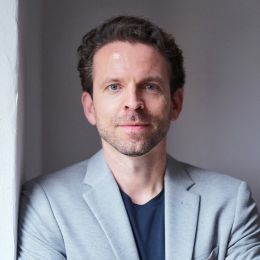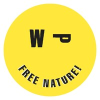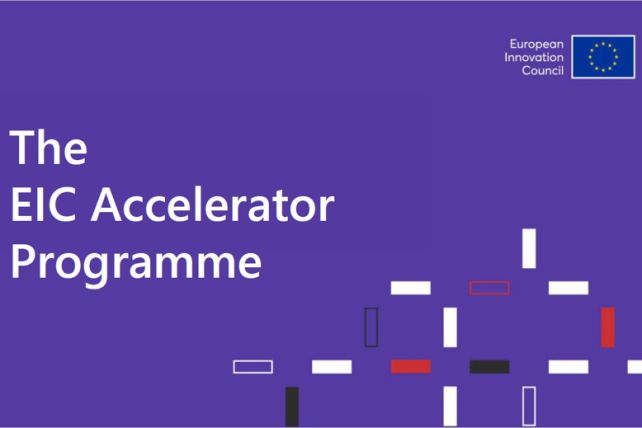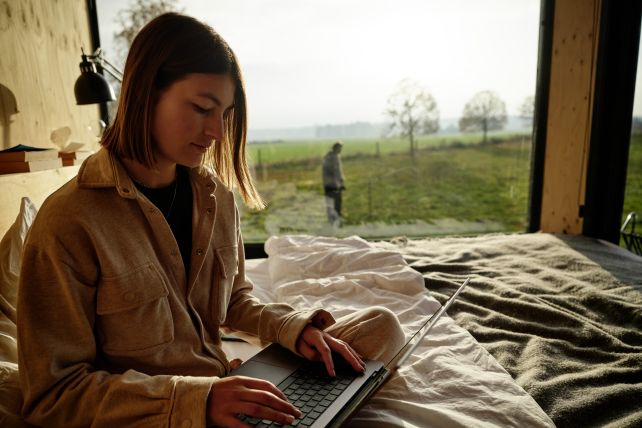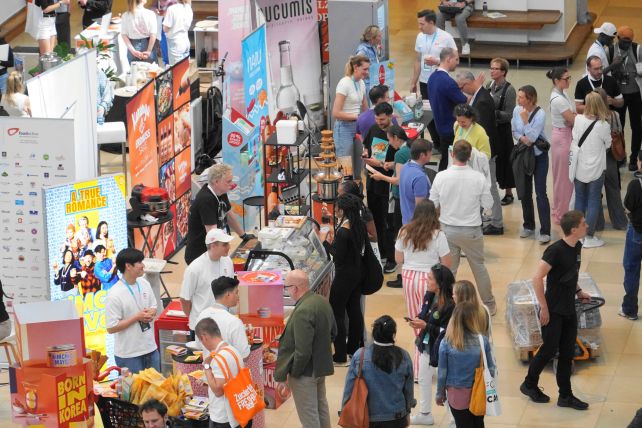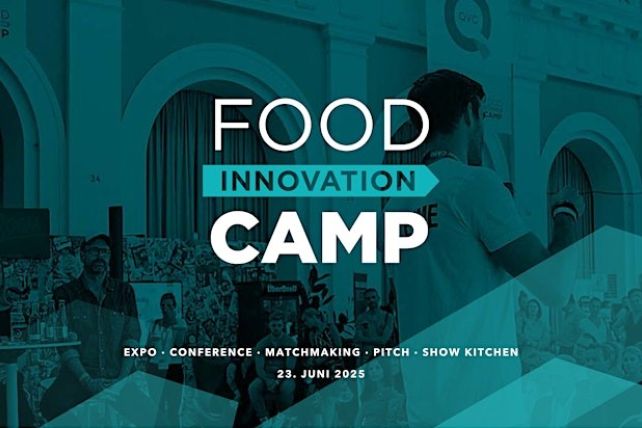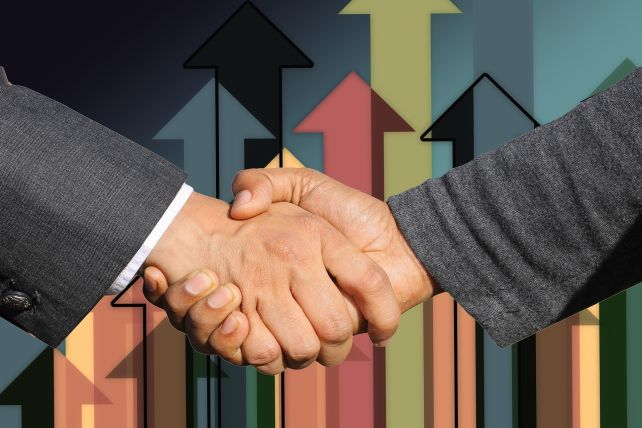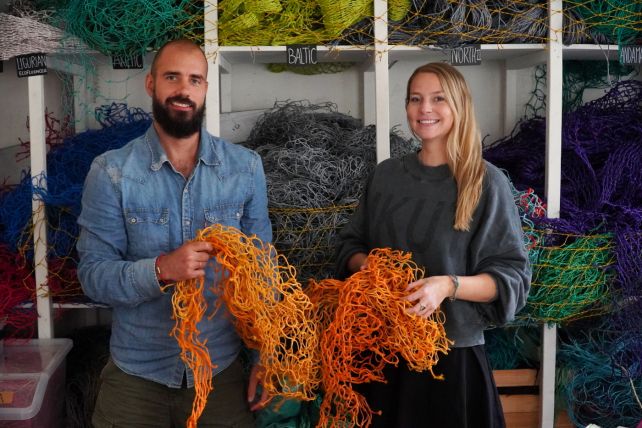Cirplus makes trading in recycled plastic easy
Hamburg is a stronghold for companies involved in the avoidance or recycling of plastic. A number of startups are dedicated to these topics with great success: traceless materials, Wildplastic, Resourcify and many more. These include Cirplus, a procurement platform for recyclates, which has managed to gain a leading position in a market with great growth potential.

An incisive experience in the Caribbean
Founder Christian Schiller gained his first experience in the startup world at a successful international company. BlaBlaCar, founded in France in 2006, claims to be the world's largest online carpooling service with over 90 million members in 22 countries. The German business was launched in spring 2013, with Christian Schiller as the first employee. After a good four years of development work, he took a one-year sabbatical and used the time to travel extensively.
During a sailing trip from Colombia to Panama in January 2018, he let his feet dangle in the water. The feeling of relaxation soon gave way to a brief shock, as something bumped into his legs. Fortunately, it wasn't a poisonous jellyfish or a hungry shark, just plastic waste. But it was just as frightening, because the boat had become entangled in a patch of this trash that even temporarily blocked the rudder. Such garbage patches are not uncommon in the world's oceans; the largest in the Pacific is said to be up to 1.6 million square kilometers in size.

A new funding program helped to found Cirplus
The incident in the Caribbean was a turning point for Christian Schiller, who decided to dedicate the rest of his professional life to the fight against plastic waste. He received support from the talent investor Entrepreneur First from London, which ran a funding program in Berlin for the first time in autumn 2018. They were not looking for ready-made startups or even necessarily startup ideas; the focus was much more on entrepreneurial personalities. In addition to Schiller, Volkan Bilici, an experienced software developer who had already worked in the plastics processing industry, also qualified.
The two found that they complemented each other well, and Entrepreneur First also recognised their potential and that of their startup Cirplus, which was founded at the end of 2018. They received 80,000 pounds sterling for ten percent of their company shares, among others from LinkedIn founder Reid Hoffman, Greylock Partners and Lakestar. They were able to impress with a procurement platform for recyclates. These are raw materials made from plastic waste from households or industry production that is reused to manufacture plastic products. A classic case of recycling, in other words, with great sustainability leverage.

Regulation can become a growth accelerator
Cirplus makes the search for recyclates as easy as possible. In three simple steps, interested companies have to provide information on the type and quality of the desired raw material and Cirplus then connects them with qualified suppliers. Unlike open marketplaces, the startup takes an active role in concluding the trade transaction and selecting the suppliers. Over 3,000 from around 100 countries are to be available in the database.
How strongly and quickly the demand for recyclates grows depends not least on political decisions. Although many companies pride themselves on their commitment to climate and environmental protection, without corresponding regulations this often remains lip service, as newly produced plastic is currently still significantly cheaper. As a result, the global recycling rate is only around 9 percent.
This could change significantly in the medium term, at least in the EU. A new packaging regulation is expected to be finally adopted this spring, and there is already agreement in principle on the content. It stipulates that from 2030, all plastic packaging must contain a minimum proportion of recyclates from household waste. For food packaging, this will be 10 percent, for disposable drinks bottles 30 percent and for all other plastic packaging 35 percent. It is set to rise to 50 to 65 percent by 2040. The German Packaging Act already stipulates a recyclate content of at least 25% for disposable PET drinks bottles from 2025.

Cirplus sets standards
Cirplus not only benefits from solution-oriented regulation, it also plays an active role in defining industry standards. In November 2022, the German Institute for Standardisation (DIN) honoured the startup with the "DIN Prize 2022" for special projects and outstanding commitment to standardisation. DIN SPEC 91446, which was co-developed by Cirplus and published in November 2021 - entitled: Classification of plastic recyclates by data quality levels for use and (internet-based) trade - won in the "Innovation" and "Climate" categories. The standard is now used in a wide range of industries and was used by the German Association of the Automotive Industry as the basis for VDA Guideline 284 on the use of recyclates in cars.
There is now a successor, DIN SPEC 91481, which was again developed by Cirplus, together with the IKK - Institute for Plastics and Recycling Technology and the Kunststoff-Institut Lüdenscheid. It improves the quality assurance of polyamide-based recyclates by rectifying the previously inadequate data quality. It provides clear guidelines for the classification and description of waste and recyclates and thus simplifies the trade in recycled plastics. In addition, DIN SPEC 91481 proposes a concept for the use of a digital product passport for plastics in order to ensure the traceability of the material in the recycling loop. Christian Schiller was also appointed to an expert council of the German government to advise it on the development of the National Circular Economy Strategy in the field of plastics.

Difficult times and good prospects
Cirplus is therefore operating in a promising market and is even helping to shape the framework conditions. Nevertheless, the company's economic development sometimes resembles a rollercoaster ride. There was a major boost in November 2021 with the conclusion of a seed financing round amounting to 3.3 million euros. The round was led by Swedish investment company VNV Global, with MyClimateJourney, Entrepreneur First, Nucleus Capital, First Momentum Ventures and various business angels also involved.
2022 was more of a year of regression. The exit of co-founder Volkan Bilici was the least of the problems; the parting was on good terms. More serious was the economic crisis that had been smouldering since the start of the war in Ukraine, which also affected the market for recyclates. Demand collapsed and did not recover in 2023. Cirplus is currently not making any profits, but the potential is still huge, which is why the startup was able to attract investors once again. Among others, the plastics processing company Igus and the venture capital company Wepa Ventures contributed a seven-figure sum. In 2023, the company also won the ZukunftsHandel trade competition in the "Environmental Saviors" category.
Cirplus has used the recent upheavals for a thorough reorganization. The entire team now works in Hamburg and no longer partly remotely. Hamburg was the perfect location for several reasons, not only because of the "plastic mafia" mentioned at the beginning, as Christian Schiller jokingly refers to the startups operating in the industry. Due to the history of the port city, there are many synergies, for example with the stock exchange and established trading companies. Even the search for investors has so far proved to be less complicated than feared. Schiller's assessment of the Hanseatic city is correspondingly positive:
